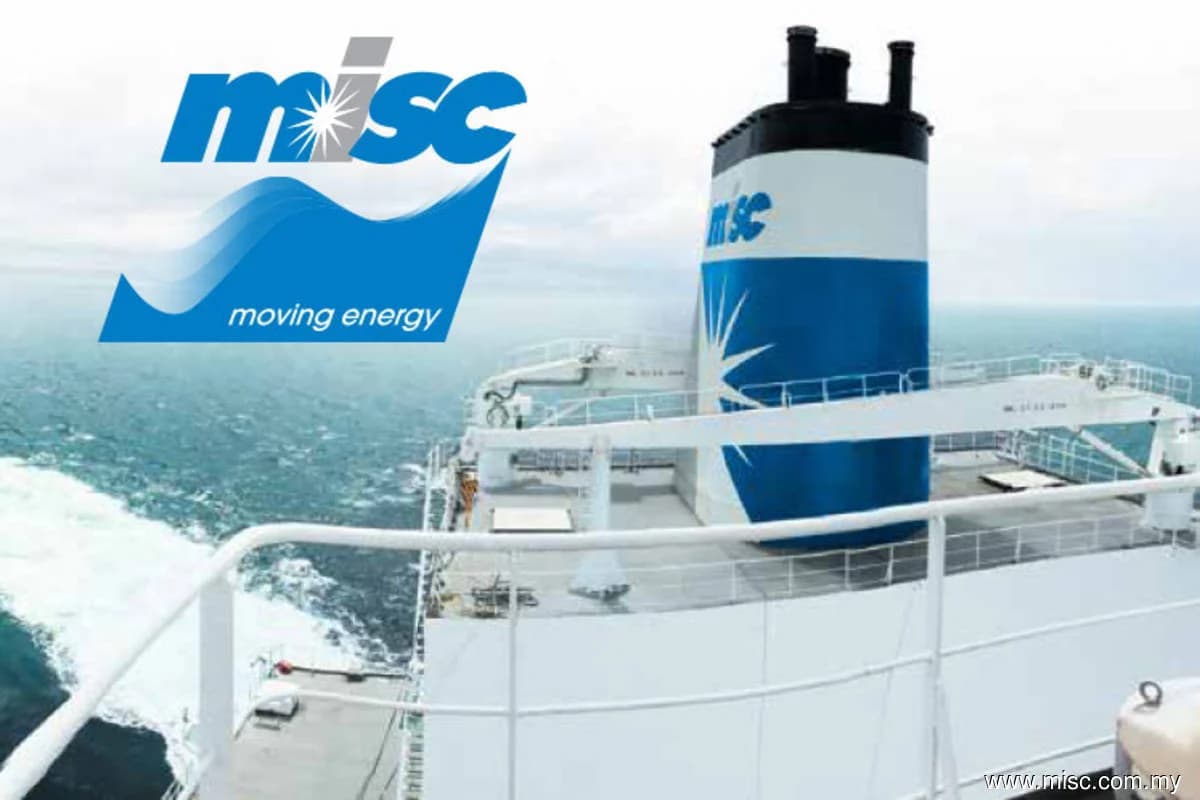
This article first appeared in The Edge Malaysia Weekly on September 26, 2022 - October 2, 2022
THE renewed bullish sentiment in the shipping industry this year has not buoyed the shares of MISC Bhd, Malaysia’s leading petroleum and liquefied natural gas (LNG) shipping group.
The continued rise in charter rates across multiple shipping categories has hinted at a potential repeat of the high charter rate environment of late 2019.
The Baltic Dirty Tanker Index has visited the 1,500-mark time and again, averaging at 1,206 points year to date, which is higher than the average of 855.4 points in 2019, when the benchmark skyrocketed above 1,950 points.
Elsewhere, shipping rates for LNG products east of the Suez canal are hovering at an eight-month high of US$150,000 per day, with the potential to rise further going into the winter season.
As the scramble for energy supply continues, vessel shortages are rising, particularly in niche segments such as LNG, in which MISC is an industry leader. However, its shares were largely unchanged at RM6.96 as at last Friday, having retreated from its short rally in 2Q2022.
Sentiment was weak as its earnings were hit by the escalation in conversion costs for its 180,000bpd (barrels per day) Mero-3 FPSO (floating production storage offloading) vessel in China, owing to the pandemic lockdowns there.
No more Mero-3 costs overrun?
After posting a net loss in its latest quarter ended June 30 (2QFY2022), MISC has guided that there will be no more provisions for the FPSO, which will be delivered to a Petrobras-led consortium. The loss was also contributed by some RM310 million in LNG fleet impairments.
“We understand that Mero 3’s completion stood at 48% as at end-June 2022 and provisions have been made for a delay of six months (till mid-2024),” HLIB Research said in an Aug 19 note.
The shipyard working on the vessel is located in Yantai city, located in China’s Shandong province, which was still reporting minor Covid-19 outbreaks in early July. Policy-wise, lockdown measures are still being imposed in the country, such as in Chengdu, up until last week, although adjustments are being made for quicker reopening.
It is reported that Mero 3 costs have risen by 9% from its earlier estimate of US$1.8 billion to US$1.9 billion. MISC owns 100% of the vessel and, as such, takes on the entire construction risk for the project.
TA Research, in its latest note on MISC, does not discount further execution risks. “Recall that there are residual costs that need to be amortised over the upcoming quarters,” it says.
MISC’s FPSO business, parked under its offshore segment, comprises a fleet of 12 floating production systems, most of which are operating in Asia. It owns 49% in FPSO Espirito Santo, located in the Campos basin offshore Brazil, which is on charter until end-2028.
Rates rising for time charter too
Meanwhile, it remains to be seen how the rising charter rate environment will affect MISC’s two other segments — 60 vessels under petroleum and product shipping, and another 39 vessels for gas assets, including 30 LNG vessels.
Having said that, just 28% of MISC’s petroleum and product shipping fleet is on spot charter, down from 35% in 1Q2022. Similarly, its LNG fleet is largely on long-term charter.
Thanks to the elevated spot rates, however, time charter rates for the LNG segment have continued on their uptrend since 4Q2020 to a multi-year high of around US$95,000 per day in 2Q2022.
This may benefit MISC’s LNG segment, which contributed about 88% of the company’s 1QFY2022 core earnings, although some observers believe the upside potential has already been priced in.
Despite the sharp rise in charter rates, on average, analysts have cut MISC’s earnings per share (EPS) forecast by 13% to 35.6 sen for FY2022, following the latest results.
MISC’s net profit in 1HFY2022 shrank 63% to RM357.3 million, or eight sen per share, from RM968.6 million, or 21.7 sen per share, in 1HFY2021 — even though revenue rose 24.2% to RM6.08 billion, from RM4.89 billion.
Among the 14 analysts covering MISC, there are seven “buy” calls, six “hold” and one “sell”, with an average target price of RM7.61. At its close of RM6.96 last Friday, MISC had a market capitalisation of RM31.07 billion, with a dividend yield of 4.74%, based on its historical payout of 33 sen per share.
During the last ship market boom in late 2019, MISC’s share price rose to a record high of RM8.56. With the hiccups of its Brazil venture starting to be reflected in its performance, its next steps will be closely watched.
Save by subscribing to us for your print and/or digital copy.
P/S: The Edge is also available on Apple's AppStore and Androids' Google Play.